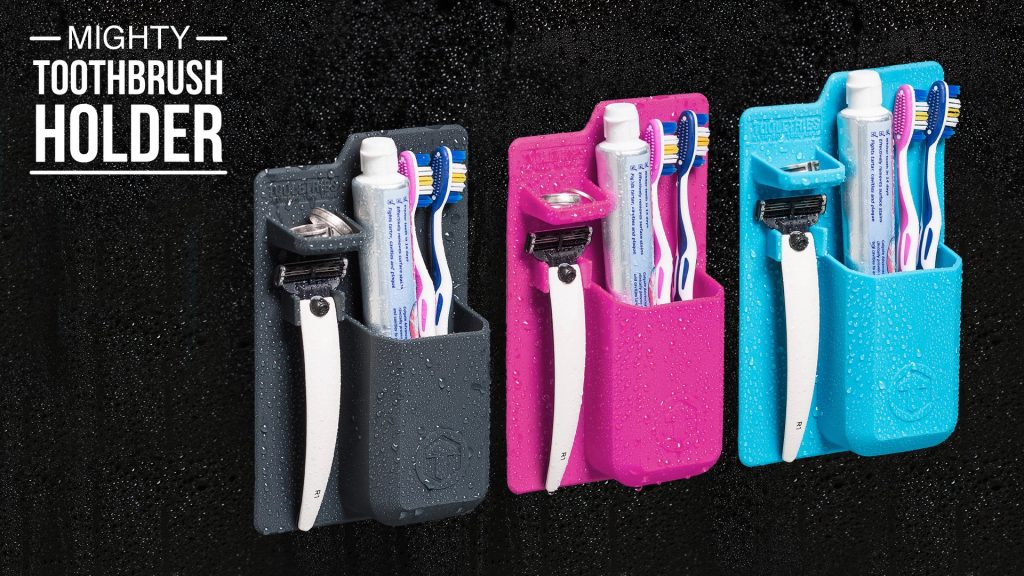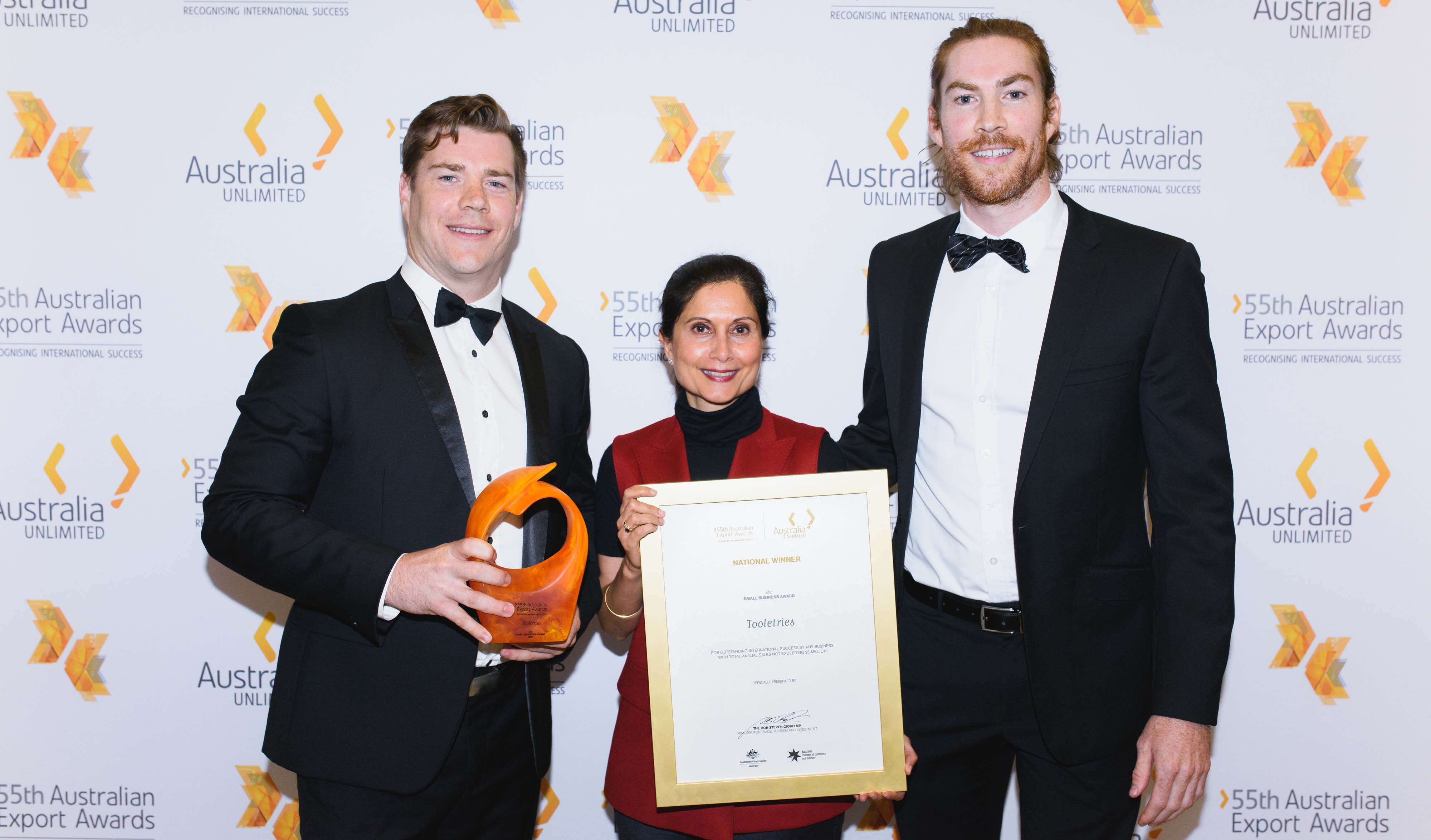The right ‘tools’ can help Australian SMEs crack international trade
AUSTRALIAN Small Business and Family Enterprise Ombudsman, Kate Carnell, has predicted 2018 will be a year of strong growth for small business exporters.
Ms Carnell said Australia’s International Business Survey 2017 showed there was greater confidence among Australian businesses that are already exporting. 
Ms Carnell said the 2017 Australian Export Awards showcased some great examples, including small business category winner, Tooletries, founded in Brisbane by brothers Josh and Saul Cockburn.
Funded by private capital and a Kickstarter campaign, Tooletries designs and manufactures bathroom accessories such as mirrors, toothbrush and razor holders and wall organisers that can be fixed to vertical surfaces utilising the company’s patented silicone technology.
The company’s products are stocked in more than 1500 retail stores and supermarkets across the US, and are available in Canada, Germany, Japan, New Zealand, Singapore, Taiwan and the UK.
Exports made up 100 percent of Tooletries’ sales revenue in 2016–17.
In agriculture and wholesaling, two thirds of businesses believe the outlook is better than the previous two years, Ms Carnell said.
The report identified China, the United States and United Kingdom as being markets where strong revenue growth would occur.
Commissioned by the Export Council of Australia – with support from Austrade, Australian export finance organisation Efic and the University of Technology Sydney (UTS) – Australia’s International Business Survey 2017 collected the opinions of 941 firms from 19 sectors undertaking international activities in more than 90 overseas markets. 
“Australia is seeing increased growth in exports and small businesses are leading the way,” Ms Carnell said.
“Nearly 88 percent of Australian exporters are small-to-medium enterprises.
“An increasing number of firms are ‘born global’, which means they’re exporting at the very beginning.”
Ms Carnell said the survey findings matched Efic’s exporter sentiment index from August last year, which showed two thirds of respondents expected future sales revenue to increase.
“Potential exporters need to know there is support available from Austrade and Efic to research their markets, make connections and obtain finance,” Ms Carnell said.
“Over the past three years, Efic has worked with more than 262 small businesses and provided more than $350 million in financial support.
“Efic is the Australian Government’s export credit agency; it operates on a commercial basis and partners with banks.
“It’s a model I believe should also be looked at for small business finance more broadly.”
The survey showed just over one third of respondents had applied for finance and almost 40 percent of these were unsuccessful.
Ms Carnell said this illustrated the challenge for small businesses to obtain capital from traditional banks, which require property as security.
“It’s great that more entrepreneurs are getting started with exports, but rapidly growing small businesses need sources of finance that don’t require putting the family home on the line,” she said.
In the survey, small exporters are regarded as those with fewer than 20 employees and annual turnover less than $2million, with exports of less than $2m during the reference period. Large exporters are those with 200 or more employees, or annual turnover of $20million or more, with exports of $20million or more during the reference period. Medium exporters are all businesses other than those defined as small or large.
ends
ABS CHARACTERISTICS OF AUSTRALIAN EXPORTERS 2015-16
|
SIZE OF EXPORTER |
2013-14 |
2014-15 |
2015-16 |
|
Large |
5,782 |
6,085 |
6,275 |
|
Medium |
13,729 |
14,126 |
14,827 |
|
Small |
25,223 |
28,470 |
30,190 |
|
Total Goods Exporters |
44,734 |
48,681 |
51,292 |
*Source: Australian Bureau of Statistics.
Ends

 How to resolve AdBlock issue?
How to resolve AdBlock issue?